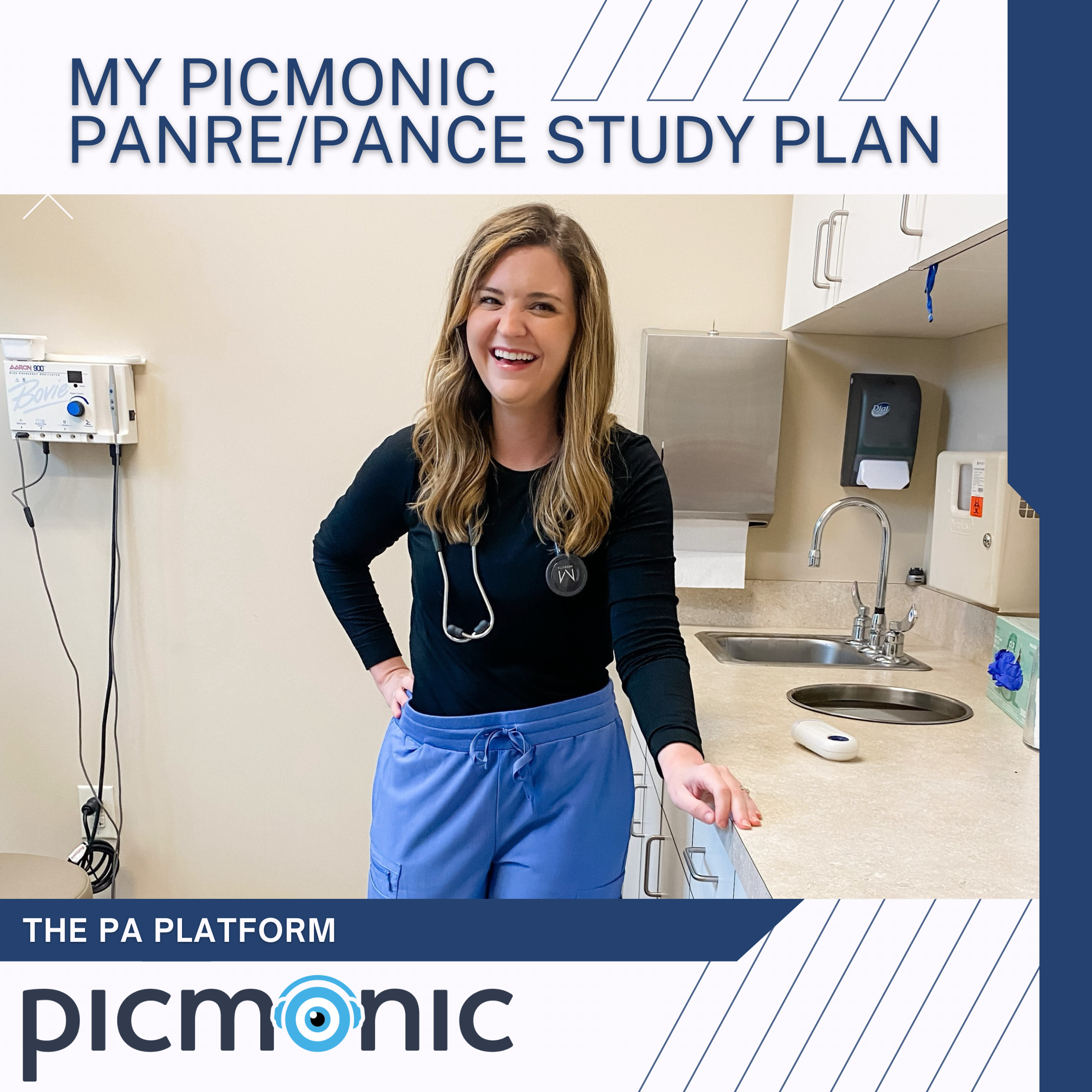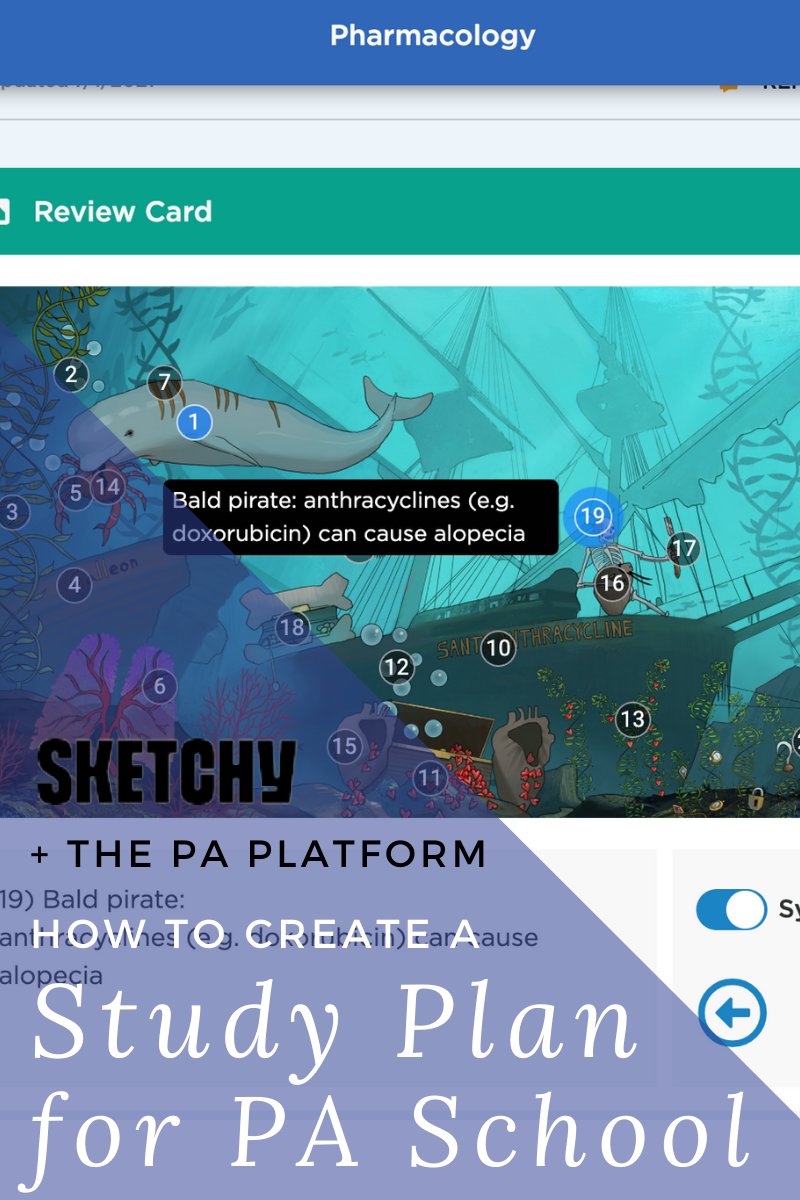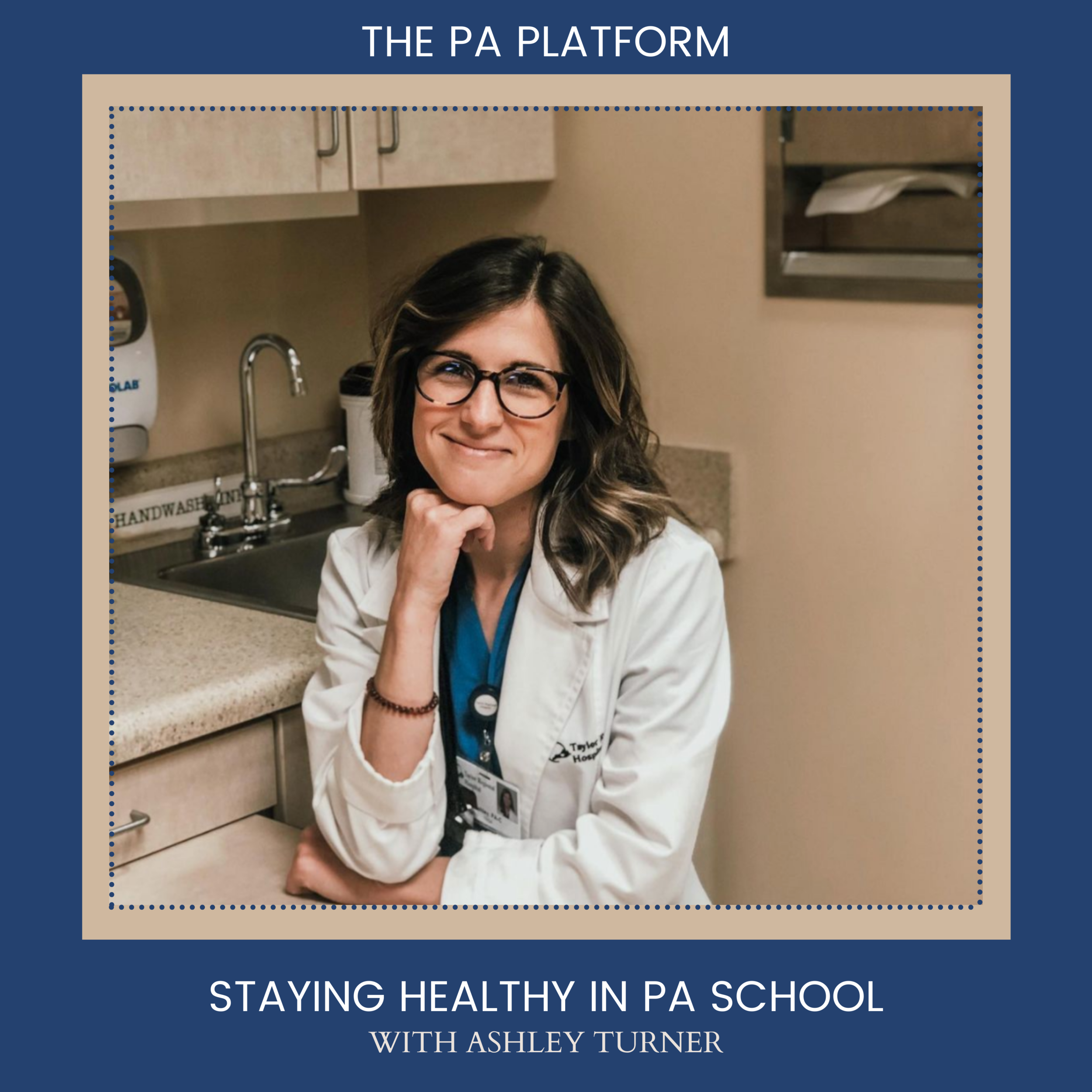Stephanie (S): My name is Stephanie Howard and I am a physician assistant. I live in Knoxville, Tennessee and I’ve been practicing obstetrics and gynecology since I graduated in 2010.
Savanna | The PA Platform (TPP): Has that been your only job?
S: Yes, I actually did a rotation with this physician, my supervising physician now, and I always knew I wanted to do women’s health. In undergrad I followed around an OB/GYN and so I kind of knew that’s what I wanted to do. I did my elective in women’s health also and I went back and did my elective with her and she offered me a job. So I’ve been with her, I guess, really since 2009 because I did 12 weeks of rotations with her.
TPP: Okay, cool. So I actually did something similar where I actually got hired before I did my electives. I was hired and then got to do 8 weeks of basically training before I jumped in my job so we kind of did the same thing there.
S: Well I think that that’s awesome and I felt like I’ve recently picked up a lot of clinical year students. I try to tell all of them, “treat every rotation like a job” because you don’t know if people are going to have openings where you’re at, you don’t know who they know, and if you do a really good job like you could be offered a job. I think I was offered like five, I was offered 5 jobs during clinicals. Of course now you know in Knoxville where I’m at, its kind of a saturated area for PAs, but at the time when I did it wasn’t and so I always try to tell everybody like if there’s something that you like or want to do women’s health, like see if you can set up your own rotation or your own elective somewhere you may want to be and like prove to them and show them why they should hire you and how they could benefit from having a PA.
TPP: That’s really good advice and something I wish someone had told me. (Let’s backtrack in a minute. I went into rotations with the mindset that I should tell everywhere I was working that that’s what I wanted to do. For example, let’s say I’m on family medicine, they would say “well what do you see yourself doing? What do you want to do?”, I would respond by saying “ oh, family medicine”. Even though, in reality, I knew I liked derm. I knew I liked procedures, and when it came to rotations I actually really liked everything except for psych. It wasn’t until I actually about halfway through the year I started telling people when they asked. It was actually my surgery preceptor I first told, “You know I really think I’m interested in either surgery or maybe dermatology.”
Once I started being honest about it and told him and my emergency medicine preceptor, that’s when people actually started seeking me out and saying like “I heard about this job, send your resume” and getting calls so it’s interesting that you give out that advice of “go into it thinking of it like a job interview because you don’t know who those people know”. It was my surgery preceptor that got me my job because he had that connection and he was able to make a phone call and say “you need to interview her and I think it would be a good fit” and so I was very appreciative of that.
S: They are more likely to take advice from a colleague who they respect and has been with somebody than like something that comes across on Indeed or an ad in the newspaper.
TPP: Exactly, I agree and that’s what I tell people with shadowing. Use all of your connections and when it comes to clinical I had a couple of preceptors who would tell me like “you seem like you want to be here and you are really participating” which I found to be a very strange comment. I felt as though all students should be like that, but apparently not.
S: I experience that also. If you ask the majority of people about their women’s health rotation there are so many mixed feelings -- you either want to do women’s health or have absolutely nothing to do with women’s health. It’s one of those things that I tell everybody, even if you don’t enjoy the rotation be interested and participate. We are trained as generalists, this is our only time in pre-PA to make the most out of our education and be the best most well-rounded PA that we can be. We really need to be all hands in and try. A lot of people have been on my rotation and they say “ooo I don’t really want to do this” and I think to myself, “well you’re here so you’re going to do pap smears until you’re comfortable with it”. A lot of people don’t and your preceptor can pick up if you don’t want to be there or not and it all goes back to how likely am I to refer somebody for a job or write a recommendation. It’s important to try and be present because they’re taking the time out of their day to teach you and obviously they enjoy their job or they wouldn’t have students and they wouldn’t be doing their job.
TPP: That’s so true. I’ve seen the same thing shadowing. If somebody’s letting you shadow you need to act like you want to be there and pay attention. On clinicals that may very well be your only exposure to that area. You need to soak up as much as possible -- especially if you know you want to do something else because like I’ve found in derm, there are certain things that affect women in areas that would crossover with OB/GYN. I definitely see things and treat things that you guys see and treat. I get referrals from OBGYN offices so it’s important to have as much knowledge as you can even of other areas if possible.
S: Patients never understand, you know obviously there are different specialists but, they think that you know what their derm knows or what their internal medicine doctor knows so they’re going to talk to you about it so at least being familiar, and saying “well I don’t do that every day, but I do remember this from my rotation and this sounds familiar” because they’re going to ask you about stuff.
TPP: Let’s backtrack a little bit -- why did you decide to become a PA?
S: I think that I was kind of fortunate because my aunt and uncle are both PAs. I grew up knowing what a PA was. I was in high school and I was exposed to what PAs were and at that time it wasn’t as popular. I’m not super old I graduated high school in 2003. When I went into undergrad I knew that I wanted to do something in the medical field and being a PA was always an option for me. I did that whole biology in undergrad and basically had to do the premed route because I would say “I want to be a PA” and people would say what’s a PA? Now they have pre-PA tracks that you can go through in school, but at that time, I graduated undergrad in 2007, nobody I knew, knew what a PA was. I got to shadow PAs, went around and I realized that that was something that I wanted to do as a female. I wanted to do something in medicine but I also wanted to be able to have a family and to be able to have a life. The balance of what the PA profession gives you, to have a life and a family and to be able to be a practitioner, it was just something that worked out really well for me.
TPP: What did that look like? I graduated high school in 2008 and college in 2012 and I feel like there wasn’t much information out there and the same thing, I would go to my advisor and “you want to do what? What’s a PA?” so I can imagine you ran into that even more. What was your application process like? Did you get in your first time? How many schools did you apply to?
S: I don’t know when CASPA started or not but I had to apply through that. I applied to 4 schools. I’m from Alabama and I applied to two of them in Alabama and I applied to one in Arkansas, and then the one in Knoxville. I was a student in undergrad and knew what I wanted to do that right when I got out of school. My biggest challenge was really my patient care hours and trying to find something that I could get in without having tons of patient care hours was challenging. I applied to those and got interviews at three places, was waitlisted at one, and then accepted into South here in Knoxville. The program was nice because it started in the fall and a lot of the other programs were starting in winter and so those things that just really lined up for me.
TPP: Once you got to PA school was it what you were expecting? What was the most difficult part for you?
S: I remember our first day they told us the amount of information you’re going to get is like drinking water through a fire hose. I’m sure everybody tells you that analogy and so I knew that there would be a lot of studying going on and a lot of information. Honestly the hardest part really has to do with kind of like the fear of missing out. Not that you’re missing out on things, but people don’t understand how much time you spend studying and how your priorities have to change when you’re in school. I remember having friends and I missed their weddings. It’s not so much in clinical but in didactic you were studying all the time. I remember I had some friends who came to Knoxville for the weekend because we had a wedding and I had like a peds test, an OSCE and like a pharm test on Monday and on Saturday they were inviting me to the pool and to have cocktails together and I had to tell them I had to go to the library. They just didn’t understand. I had to explain that I was basiclaly studying my life away and to go have fun without me..
TPP: I felt the same way. You have to make those decisions. I was living at home and my parents, I always felt so bad until I learned how to study. They would ask me to go to dinner and I would have to say “I can’t, I need that 30 minutes or that hour to study” which was a little bit dramatic, but you have to eat.
S: You have to learn how to study and learn what’s important and what’s not important. Of course you’re not going to know everything but you have to get those basic concepts. At South, we had quarters so probably the first 2 quarters to try to like get in the groove and figure out studying. It can be done, I got married the second quarter of PA school so it can definitely be done. More so time management and knowing that you’re not going to get to go out every night and there are some things that you’re going to have to miss, but it’s a small, small amount of time.
TPP: Plus, it goes by so quickly. I felt as though it flew by -- small sacrifices. Once you got to the end of PA school you knew you wanted to do OB/GYN and you got lined up and did your electives. Did you interview for any other job or was that your only “this is the job I want”?
S: Once she offered me that job, I knew that was what I wanted to do. During my rotations I had been offered other jobs and they were one of those things that they were getting in touch with me and it was more so if this falls through I’ll get in touch with you, but I knew that’s what I wanted to do and I really clicked with my supervising physician. She has taught me everything that I know about women’s health and has really trained me to do things the way that she wants them done. We have a great relationship and she values PAs in their role in medicine. She’s a very big supporter -- that’s so important as the PA to know that, who you’re working for really understands what you can do you and uses you to your full potential.
TPP: What does a day at your job look like?
S: It differs from day to day. I do a lot of annual exams, birth control consulting, irregular periods, etc... I see everybody from adolescents to teenagers, pregnant women and menopausal women. I work up a lot of things such as dysfunctional uterine bleeding and pelvic pain. I deal with ovarian cysts, fibroids -- all of those things. We even do weight-loss counseling in our office, so there’s a lot of stuff. I am procedure-oriented, I love to do procedures so I do biopsies, such as endometrial biopsies. I manage abnormal pap smears, and do follow-ups with colposcopies. I do lots of ultrasound procedures like sonohistograms and hysterosalpingograms to look at the lining of the uterus and to make sure the tubes are open. We do a lot of bladder installations in our office for interstitial cystitis, and put birth control in and take birth control out. There’s a lot you can do in women’s health besides just pap smears all day long.
TPP: One question that I get a lot about specifically PAs working in OB/GYN is what can you do as far as pregnancy and delivering babies? Which I don’t know, I feel as though some of this varies by state maybe. What are your thoughts or role in that way?
S: Yes -- I work with pregnant patients all day from conception -- trying to conceive and helping people conceive with Clomid and different medications -- to managing them throughout their pregnancy. Our hospital, or the hospital that I work at, currently doesn’t have any PAs, midwives or nurse practitioners that deliver. So I think really that it’s hospital-oriented and what the hospital wants you to do. I have delivered babies before with my supervising physician. You know it all kind of came down to what did I want to do? What lifestyle? And delivering babies is awesome, but babies do not wait on anybody and so if you get into the delivering thing you’re going to be on call on the weekends, you’re going to have to be getting up at 3 in the morning and go deliver a baby and that can be a rough lifestyle. For me, I don’t personally want to do that. I love managing my pregnant patients, I love managing gestational diabetes and hypertension and helping them throughout their pregnancies. When it’s time for babies to be delivered generally, my supervising physician, leaves the clinic and when she leaves the clinic it’s mine to run. I see her patients and I make sure that they are being taken care of so she can go do that. When she comes back she doesn’t have 15 patients still waiting on her before she can leave. I think it’s really a personal preference. I know that there are two residency programs now for post graduate OB/GYN and they do a lot of vaginal deliveries. I think more than anything it depends on hospitals systems because if the hospital is not going to let you deliver, it doesn’t matter where you’ve trained or what you can do.
TPP: I remember in school we had a dermatology PA come in to do a talk and she had done one of those OB/GYN residencies I think in California. She said when she was out there she delivered about 300 babies and when she moved back to Georgia she could not get approved by the medical board to deliver babies. They just said no and even with the support of her supervising physician and proof that she had done all of these deliveries, in Georgia it’s just not considered part of a PA’s scope of practice. We do have a lot of midwives who deliver so I think that’s something for somebody who wants to deliver babies you have to look at that if you’re thinking about becoming a PA look at your state and figure out if that something you can do or not.
S: Exactly because there’s definitely not a reason that we can’t deliver babies. We are trained adequately and obviously if you do post-residency it shouldn’t be an issue. A lot of states, unfortunately, have that rule and a lot of it could be that that’s a midwife thing in midwifery. A lot of times you have different organizations that maybe you don’t want PAs to get in there because that takes away job security as well.
TPP: Yeah I think that’s definitely part of it of why that kind of separation is there. How many patients do you typically seen in a day?
S: I see about 25 patients a day. Sometimes I can see more depending on if my supervising physician has to go do a delivery or what’s going on in the office. I have slots in there too to work in but generally it’s about 25.
TPP: Okay, and do you work full time?
S: I do. Full-time for us is four days a week. I have Tuesdays off which is nice so I can I spend time with my kids at home or kind of have a me-day. I always tell everybody working in medicine I love it and I would not trade it for anything, but especially woman’s health. We see a lot of psych stuff so there’s a lot of anxiety, there’s a lot of depression. I think because it’s such an intimate job, people are more likely to talk to me about things and tell me things that they should tell their primary care. Emotionally, it can be really exhausting some of the things that I hear so it’s nice to just have a me day to kind of decompress.
TPP: It is important to not take too much work home with you. Let’s talk a little bit about your Instagram account and now podcast. We first connected on Instagram in the little PA community that is there. What made you start now what was Teenage Female Health and is now the thegyn_pa?
S: I see so many teenagers in my clinic and you know it’s just so crazy because half of the stuff that I hear from them is they’re not very well educated when it comes to the female body and I think a lot of that has to do with the fact that we grew up and we are told “girls have vaginas boys have penises those are very private things we don’t talk about them”. Then in fifth grade someone takes us in a room and they’re like you’re going to have a period. We watch a video and you’re like “what in the world is happening?” and so then parents are like “well, she learned about it in school and we rely on the school system”, but living in the Bible Belt especially living where we are is an abstinence only education system, there’s a lot of misinformation out there and there’s a lot of information that these girls aren’t getting. I wanted to create a program where they could get information that’s correct because you can look up anything on the internet and you can make it say exactly what you want it to say. I wanted to like be a source of information that was correct for these young women and I actually have an online sex-ed and comprehensive health program for girls from seventh to twelfth grade. It’s online so I started my Instagram because I quickly found out that Facebook isn’t cool anymore.
TPP: Facebook is confusing.
S: Everybody has Instagram so I quickly noticed that my audience becoming a lot of PAs, so pre-PAs, adolescent girls, young women in their 20-somethings and then also nurse practitioners and different healthcare providers. I felt as though naming it teenage female health isn’t very inclusive so I think a lot of people felt like “this page isn’t for me because I’m not a teenager” so that’s why I changed it to thegyn_pa.
TPP: Okay cool. You started your podcast which I love the name by the way, you want to tell us about that?
S: Yeah, so the podcast is called Britt and Steph At Your Cervix! Britt was one of my students and we went and got pedicures a few months ago before she moved to Texas to start her job in OB/GYN and she mentioned that we need to do a podcast. I thought. “I have no idea how we would even do that!” We talked about it and she is a huge podcaster she was like “there’s just not like anything out there for women’s health to listen to. I think there maybe something but it’s kind of like dry”. Our personalities are very like laid-back and we both value education and think knowledge is power so we wanted to get material and present it to future healthcare providers and current practitioners in a way that just kind of seemed like having a glass of wine with your friend and make it easy to understand.
TPP: Well I listen to the first episode and I can say that you guys nailed it. I listen to it while I was taking my baby for a walk and it was a great refresher and as you said, it’s really easy to listen to. The concepts are really simple to understand, nothing crazy or conceptual. It was great. I’m excited to see where you guys take it. I’m sure there are plenty of topics to cover. I’m sure you will get lots of questions.
S: Oh yes, so we already have 42 topics planned.
TPP: That’s almost a whole year! I think we covered everything. Any other advice or tips that you’d like to throw out there?
S: I think that you know definitely one thing is that if you were interested in women’s health don’t be scared. For some reason people have this misconception that women’s health you know isn’t for PAs. My question is why? We are trained as generalists, we have just as much training in women’s health as we do in general surgery and pediatrics. Most people are like “PAs are just not in women’s health” and that’s true. There’s less than 1% of us, but it doesn’t have to be that way and we shouldn’t have to be discouraged. I would just have to say that if women’s health is something that you want to do, it’s definitely an attainable goal. It’s a great career -- go at it and find your rotation and let people know that that’s what you want to do. Don’t be scared to do women’s health. Just like we mentioned earlier, if you want to do vaginal deliveries then look at the states and know where you can do that or hospitals that will allow you to do that.
TPP: Just before you jump in, get all the details. Stephanie will help you answer any of the questions that she can about her job and it’s kind of nice to have the social media to get kind of more awareness about our role in different areas. I think you’re doing a great, great job.

















